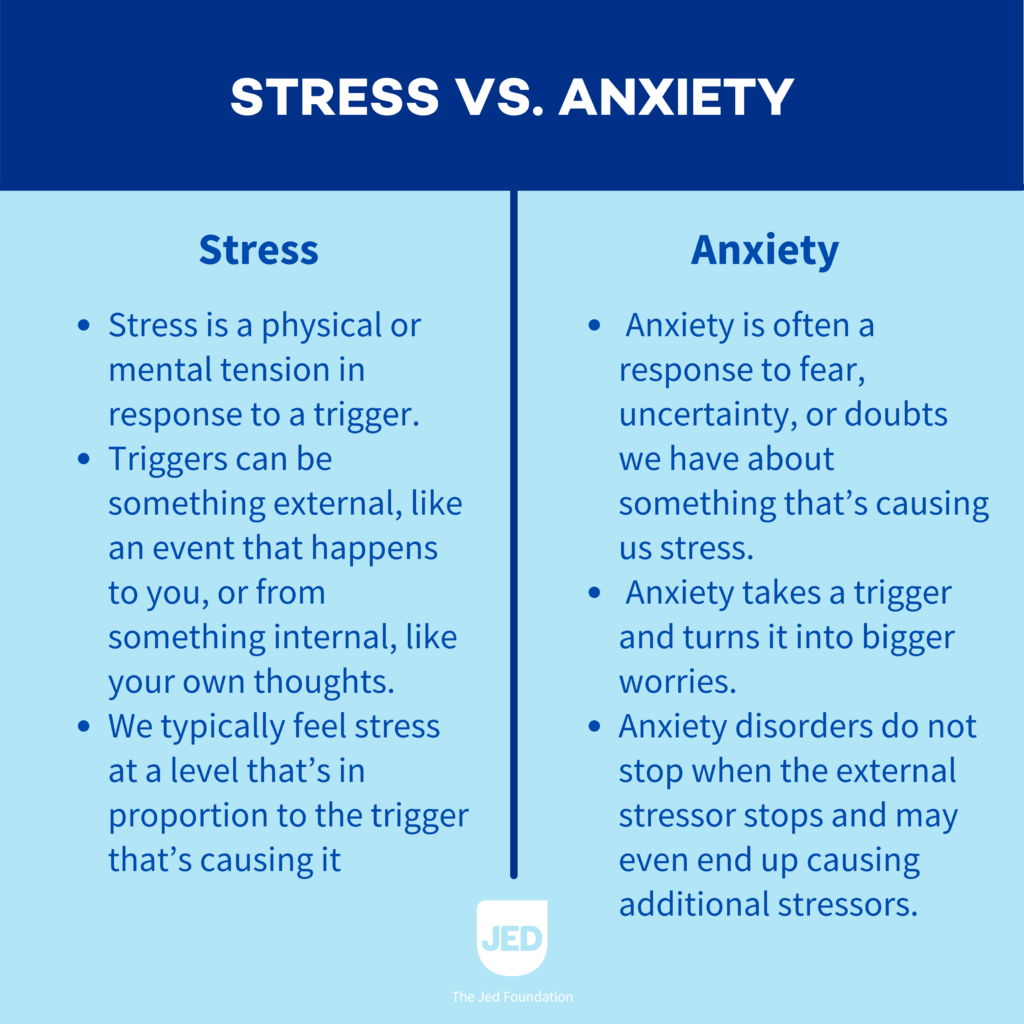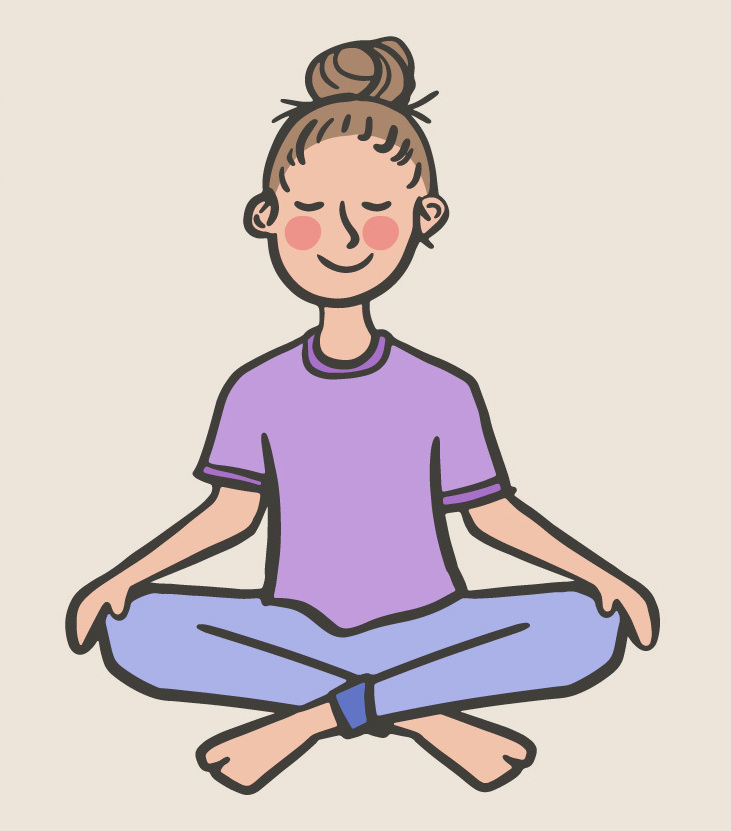 What is anxiety? Anxiety is a feeling of intense worry or uneasiness that we experience when we’re facing something stressful, often a situation with an uncertain outcome. In a concerning situation, feeling a certain amount of anxiety is normal, and can even be helpful – for example, it can help us stay motivated to meet deadlines, or even keep us safe in a scary situation.
What is anxiety? Anxiety is a feeling of intense worry or uneasiness that we experience when we’re facing something stressful, often a situation with an uncertain outcome. In a concerning situation, feeling a certain amount of anxiety is normal, and can even be helpful – for example, it can help us stay motivated to meet deadlines, or even keep us safe in a scary situation.
But anxiety that’s too intense, or goes on for a long time, can stop being helpful to us and start interfering with our lives. If you’re feeling anxious, it’s important to understand what’s causing it, how it’s different than regular stress, and the different kinds of anxiety you might be experiencing.
What Causes Anxiety?
If you’ve experienced anxiety, you’re not alone: anxiety is one of the most common mental health challenges. And there are a number of both innate and environmental factors that help determine if and how we experience anxiety, including:
- Genetics: Our genetics and family history play a big role in our mental health. If people in our family have experienced an anxiety disorder or struggle with anxiety, it may increase the likelihood that we will struggle.
- Overall Mental Health: Experiencing other mental health conditions, like depression or an eating disorder can cause cognitive and emotional distortions that increase anxiety and challenge our ability to cope with anxiety in a healthy way.
- Gender: Research has shown that cisgendered women are more likely than men to experience certain types of anxiety disorders. For more on anxiety disorders, see the section below.
- Background: How we grow up and the cultures we identify with can impact how we experience anxiety and our perspectives on how to best cope with those feelings. It can also influence how willing we are to seek help if we need it..
- Environment: What is happening outside of us in areas that affect us, like work, school, relationships, or having to manage challenging life situations can have a powerful impact on how much anxiety we experience and on how well we cope with it.
- Coping Skills: How we have learned to cope with anxiety and other difficult emotions is also a critical factor in how anxiety impacts our life and sense of wellbeing. Unhealthy coping mechanisms, like ignoring the feelings or numbing them with drugs or alcohol, can make anxiety worse.
All of us experience some level of what we recognize as anxiety from time to time. At low levels, this feeling is generally referred to as “stress” and can be a healthy and motivating response to a particular life situation. For example, feeling stress before an exam is normal and helps to motivate focus, which is typically helpful in such situations. But, sometimes our inner response is disproportionately larger than the external situation it is linked to or we feel high levels of agitation for reasons that are unclear to us. So, how do we discern stress from anxiety if they are variations on the same general feeling?

In general, you can figure this out by looking at how well the external situation matches the inner response (e.g. do the feelings make sense given the situation?) and how much the feelings you are having are impacting your sense of wellbeing and ability to get things done. When your inner agitation is interfering in your daily life or sense of wellbeing, especially when there is no obvious reason, then you may be experiencing levels of anxiety that might be worth checking out. Stress is a physical or mental tension in response to a trigger.
Triggers can be something external, like an event that happens to you, or from something internal, like your own thoughts. Stress is a normal part of life – while it can definitely be harmful in large doses, we typically feel stress at a level that’s in proportion to the trigger that’s causing it. Anxiety, on the other hand, takes that tension and turns it into bigger worries. Anxiety is often a response to fear, uncertainty, or doubts we have about something that’s causing us stress.
Excerpted from “Understanding Anxiety” from the JED Foundation. Read the full article online for additional details on anxiety triggers, anxiety disorders, and managing anxiety.
Source: The JED Foundation | Understanding Anxiety, https://jedfoundation.org/resource/understanding-anxious-feelings | copyright 2022 The Jed Foundation
A screening can help you determine if you or someone you care about should contact a mental health professional. CHC teletherapy services are available now. Call or email our Care Coordinators at 650.688.3625 or careteam@stage.chconline.org to set up a free 30-minute consultation appointment.





